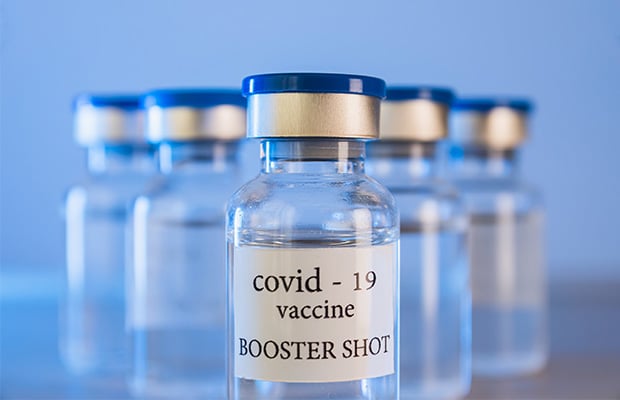What's on this page:
Congenital heart disease and risk of Covid-19 illness
There are many different types of congenital heart disease. Your risk of getting seriously ill from Covid-19 depends on a few things. It’s not only about which particular congenital heart condition you have, it’s also about how severe it is, how well your heart is working, your age, any other health issues you have, and whether you’ve been vaccinated or had Covid-19 before.
Most people with congenial heart disease who catch Covid-19 will only have mild symptoms, or none at all.
If you have a congenital heart condition, getting vaccinated can help to lower your risk of becoming seriously ill from Covid-19.
Low risk of severe infection
In general, if all of these apply in regard to your congenital heart condition, you are at low risk of severe coronavirus illness:
- your heart's ability to pump blood is not affected
- you don't have any symptoms from your heart condition
- you have a normal shape and size heart
- your heart rhythm is normal
- you don't have pulmonary hypertension (high blood pressure in the lungs)
- your heart valves are normal
Want to get fit and healthy?
Sign up to our fortnightly Heart Matters newsletter to receive healthy recipes, new activity ideas, and expert tips for managing your health. Joining is free and takes two minutes.
I’d like to sign-up
High risk of severe infection
If you have “haemodynamically significant” congenital heart disease, or milder congenital heart disease as well as another health condition, you may be at a higher risk from Covid-19 infection. “Haemodynamically significant” means that your condition is considered severe enough to significantly affect how well your blood is pumped around the body.
Factors that could put people living with congenital heart disease at high risk include:
- any congenital heart disease that requires medication to improve your heart function
- pulmonary hypertension (high blood pressure in the lungs) that requires medication
- chronic cyanosis (low blood oxygen levels – in other words, your oxygen saturations are consistently below 85%)
- Fontan circulation
- single ventricle, such as tricuspid atresia or hypoplastic left heart syndrome
- cardiomyopathy that requires medication
- previous heart transplant to treat your congenital heart condition
- additional medical problems such as lung disease or kidney disease
- you’re pregnant with significant congenital heart disease
- you have Down’s syndrome and congenital heart disease
- you’re taking medication that makes you more likely to get infections (such as immunosuppressant medicine or high doses of steroids)
- you are immunosuppressed, including if you don't have a spleen that works normally (this can happen with right atrial isomerism and other congenital heart conditions - you may be taking penicillin regularly if this applies to you).
Your congenital heart disease specialists are the best people to advise you if you are at a higher risk from Covid-19 because of your condition, for these or other reasons.
Adult congenital heart disease and Covid-19 vaccination
If you have a congenital heart condition, the vaccine can help to reduce your risk of getting Covid-19 as well as your risk of becoming seriously ill if you do get it.
All adults (16 or over) with a congenital heart condition are being offered a seasonal booster. If you’re eligible, you should be contacted by the NHS.
Covid-19 risk in children with congenital heart disease

Most children with congenital heart disease aren’t at particular risk of becoming seriously ill from Covid-19 infection. Adults generally have a higher risk than children.
Children with complex congenital heart disease are classed as higher risk such as some children with Fontan circulation, single ventricle or cyanosis, or children who also have significant lung disease, heart failure or pulmonary hypertension.
Your child’s congenital heart disease specialist is the best person to advise about their particular condition and risk.
Should children with congenital heart disease get the Covid vaccine?
The Joint Committee on Vaccination and Immunisation (JCVI) has recommended that those at high risk of Covid-19 should be offered a seasonal booster dose. This includes children under 16 years of age with “haemodynamically significant” congenital heart disease. In other words, it’s severe enough to significantly affect how well blood is pumped around the body.
For children with a congenital heart condition, the vaccine can help to reduce their risk of getting Covid-19, as well as the risk of becoming seriously ill if they do get it. If you’re not sure whether the vaccine is right for your child, speak to your congenital heart disease team.
I haven't had a check-up for my congenital heart condition for a long time - what should I do?
The NHS is experiencing some delays and backlogs in care, so unfortunately you may not have had your regular check-ups.
If you are concerned about your condition, get in touch with your congenital disease service, and ask if you can have a check-up. It’s particularly important to seek help if you experience any new symptoms, or your existing symptoms get worse.
Covid-19 risk in pregnant women with congenital heart disease
Pregnant women are at higher risk from Covid-19 in general, and if you have significant congenital heart disease your risk will be higher still. Getting fully vaccinated, including a seasonal booster, can reduce your risk of getting Covid-19 and lower your chances of experiencing severe illness if you do get it.
If you become pregnant, it is important to tell your specialist congenital heart disease team. They may need to be involved in your pregnancy care and to keep in contact with your antenatal service.
The decision on whether to get vaccinated is a personal one. However, pregnant women are strongly recommended to have the Covid-19 vaccine, including the booster. Getting Covid-19 can be serious for you and your baby, especially if you are unvaccinated. The vaccine is considered to be very safe and effective at any stage of pregnancy. The Royal College of Obstetricians and Gynaecologists (RCOG) and other expert bodies urge pregnant women to make sure they are fully vaccinated.
What to read next...










